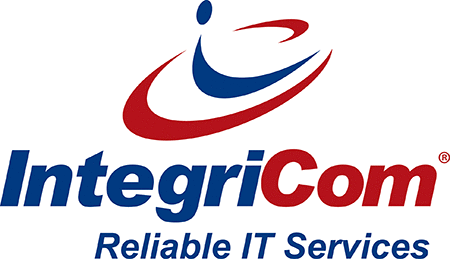Modern businesses can’t afford communication systems that drain budgets or slow daily operations. Rising phone bills, aging hardware, and limited features often signal deeper issues that impact customer satisfaction and internal efficiency. Outdated systems also struggle to support remote work and leave security gaps vulnerable to attacks. Transitioning to cloud-based technology offers a scalable, cost-effective alternative that strengthens connectivity and performance. In this blog, we outline the clear warning signs that it’s time to upgrade to a VoIP solution for lasting reliability and growth.
Key Takeaways
- Switching to a VoIP phone system can cut communication costs by up to 60%, help address rising costs associated with legacy systems, and provide modern features that enhance productivity.
- Traditional phone systems impede growth due to high maintenance costs and lack of scalability, while upgrading to a modern business phone system offers the flexibility and connectivity needed to support your business as it evolves.
- VoIP technology ensures improved call quality, enhanced security measures, and effective support for remote work, keeping your business competitive in today’s digital landscape.
High Phone Bills Are Draining Your Budget
Are your monthly phone bills creeping up and eating into profits? For many companies still running on traditional phone systems, the numbers tell a painful story. If your current phone system struggles to handle increased call volume or scaling costs, the impact on your business can be significant. On-site equipment, licensing, and maintenance fees keep stacking up. International call rates remain steep. Adding a new location or line is costly and slow.
And then there’s the hidden drain: poor call quality. Dropped calls, static, and missed connections don’t just frustrate customers; they lead to lost sales and wasted staff time. In contrast, a cloud phone system or cloud-based phone systems can significantly reduce these expenses compared to traditional setups. If your communications platform feels more like a liability than an asset, it’s time to consider a smarter way forward. Choosing the right service provider for a cloud-based solution can help control costs and improve efficiency.
Why VoIP Cuts Costs Without Cutting Corners
A cloud-based VoIP (Voice over Internet Protocol) system flips the traditional model on its head. As one of the leading cloud-based solutions for business communication, VoIP offers flexibility, scalability, and cost-effectiveness. Instead of expensive hardware and rigid service plans, VoIP runs over your existing internet connection and scales with your needs. Key cost savers include:
- Lower international rates compared to standard carriers
- No physical phone lines, which can cut expenses by up to 60%
- Pay-as-you-go pricing so you only pay for what you use
- Free internal calls, perfect for distributed teams
A new system like VoIP provides all the features modern businesses need, from advanced integrations to remote work support, ensuring seamless communication and efficient operations.
By moving to VoIP, businesses free up cash for growth initiatives rather than sinking it into outdated infrastructure.
Outdated Technology Is Holding You Back

If you’re still depending on an outdated phone system, you’re missing capabilities that competitors now consider basic. These systems often come with limited support, making troubleshooting difficult, and typically lack integration with essential business software. Older hardware also creates hidden costs. Frequent maintenance and higher long-distance charges add up, while the lack of modern features limits how efficiently teams can serve customers. These limitations can disrupt business operations, and in a market where responsiveness is everything, these gaps can become deal-breakers.
Consistency: Customers Can Hear
Poor call quality and outages aren’t just annoying; they damage your brand. Modern phone systems deliver crystal clear call quality and reliable communication, unlike an unreliable phone system that can lead to missed calls and customer frustration. VoIP technology delivers HD voice clarity and smart failover options that keep you connected even during internet disruptions or local outages. With multiple data centers supporting your system, uptime and reliability are maximized, minimizing the risk of outages. Advanced call routing ensures that no customer is left in a queue or sent to voicemail unnecessarily, and features like conference calls are fully supported for seamless collaboration.
Built-In Security for a Connected World

Security threats have moved beyond email and websites; phone systems are targets, too. Security concerns with older phone systems are significant, as these outdated setups often lack proper encryption and security features, putting business communications at risk of hacking, toll fraud, and data breaches. Modern VoIP systems address this head-on with end-to-end encryption, role-based access, and regular security updates.
When choosing a VoIP provider, it’s important to select one that prioritizes security by investing in advanced measures like Session Border Controllers (SBCs) to ensure call privacy and protect sensitive business communications. Compliance features help you meet regulatory requirements without extra effort.
Ready for Remote and Hybrid Teams
Work is no longer tied to a single desk. Yet traditional phones often can’t keep pace with mobile and remote workforces. VoIP lets remote employees stay connected across multiple locations by using the same business number on laptops, tablets, mobile devices, or through mobile apps. This flexibility allows users to choose between a desk phone or a mobile device for unified access to their communications. Features like integrated messaging, video conferencing, and voicemail-to-email keep teams synchronized, whether they’re in the office, at home, or on the road. VoIP also supports unified communications, combining phone calls, email, chat, and video conferencing into a single platform for remote and hybrid teams.
Transitioning Smoothly to VoIP
Worried about downtime during the switch? A well-planned migration can be seamless. The process typically includes:
- Auditing current communication needs and pain points
- Assessing internet capacity to ensure strong call quality
- Selecting a reputable provider that offers system installation and training to ensure a smooth transition
- Scheduling a phased rollout with backup plans to guarantee zero missed calls
Many businesses are surprised to find they can be fully operational on a new cloud-based system within days. Companies weighing deployment options can benefit from understanding hosted VoIP vs on-premise SMB to choose a model that best aligns with their growth plans, budget, and desired level of control.
Moving Forward with Smarter Communication
Recognizing the signs that your organization has outgrown its traditional phone setup is key to staying competitive. For a small business, choosing the right phone system can enhance customer service, improve customer experience, and streamline operations, helping small businesses stay agile and professional. From escalating costs and poor call quality to limited scalability and weak security, outdated systems hold businesses back and frustrate both teams and customers. Embracing a VoIP platform transforms communication into a growth driver, offering flexibility, advanced features, and long-term savings that keep pace with modern demands.
At IntegriCom, we help companies streamline their communications with advanced business phone systems in Atlanta designed for scalability, reliability, and security. Our team specializes in seamless VoIP integration, ensuring a smooth transition without operational disruption. Partner with us to upgrade your communication strategy, improve collaboration, and position your business for sustainable growth.
Frequently Asked Questions
What are the key benefits of switching to a VoIP phone system?
Switching to a VoIP phone system can save you money on communication costs and provide advanced features that enhance productivity. A VoIP system is a modern solution for business communication, offering flexibility, scalability, and cloud-based management to support your evolving needs. Embrace this technology for reliable, secure communication that supports your business growth!
How can VoIP systems improve call quality?
VoIP systems can significantly enhance call quality by using high-definition voice technology and advanced codecs for clearer audio. They deliver crystal clear call quality, ensuring conversations are free from background noise and distortion. With automatic failover features, they ensure uninterrupted communication, keeping you connected at all times!
Are VoIP systems secure?
Absolutely, modern VoIP systems are designed with strong security features like encryption and secure access controls to safeguard your communications. Security concerns that are common with traditional phone systems are addressed in VoIP solutions through advanced encryption, secure access controls, and adherence to industry standards, helping protect both business and customer data from breaches. Embrace these technologies confidently, knowing they prioritize your privacy and protection.
How does VoIP support remote work?
VoIP empowers remote work by enabling access to business phone numbers on personal devices, facilitating seamless communication through features like video conferencing and messaging. It supports remote employees by allowing them to stay connected and collaborate efficiently from multiple locations. Embrace this technology to enhance collaboration and stay connected with your team, no matter where you are!
What steps are involved in transitioning to a VoIP phone system?
To successfully transition to a VoIP phone system, start by identifying communication challenges and researching potential providers. Choose a project leader, assess your network capacity, establish backup methods, and ensure professional system installation and thorough training for a seamless switch.


